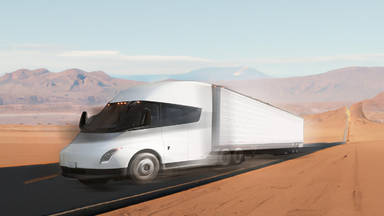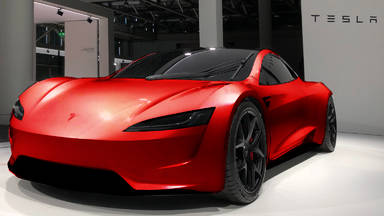
Apple's decision to abandon its plans to make a fully autonomous car has come as a surprise to many in the tech industry. The company had been heavily investing in the development of self-driving technology, hiring a team of engineers and rumored to be working on a number of different prototypes.
However, despite these efforts, it has become clear that the challenges involved in creating a fully autonomous vehicle are simply too great to overcome at this time. One of the biggest challenges facing the development of autonomous vehicles is the technology itself. Creating a car that can safely navigate roads without a human driver is a complex task, and there are many different factors that must be taken into account.
For example, the car must be able to accurately perceive its surroundings, using a combination of sensors and cameras to create a detailed map of the area. It must also be able to make decisions based on that information, using algorithms to determine the best course of action in any given situation. Furthermore, the technology must be able to handle complex traffic situations and avoid collisions with other vehicles and pedestrians.
This requires advanced algorithms and machine learning techniques that are still being developed and refined. In addition, the car must be able to operate in a wide range of weather conditions, from rain and snow to fog and ice. All of these factors add to the complexity of the technology and make it difficult to create a fully autonomous vehicle that can operate safely on roads.
In addition to the technical challenges, there are also significant regulatory hurdles that must be overcome before a fully autonomous vehicle can be put on the road. Governments around the world are still working on developing regulations for self-driving cars, and it is unclear when these regulations will be finalized. Until they are, it is difficult for companies like Apple to move forward with their plans.
There are also economic considerations that likely played a role in Apple's decision to abandon its plans for a fully autonomous car. Developing a self-driving car is an expensive and time-consuming process, and it is unclear if the market is ready for such a vehicle. Many people are still hesitant about the idea of a car that can drive itself, and it remains to be seen if there is enough demand for such a product to justify the cost of development.
Furthermore, the self-driving car market is already highly competitive, with a number of major tech companies and automakers working on their own autonomous vehicle technologies. This competition could make it difficult for Apple to differentiate its product and compete in the market, potentially leading to lower profits and a less successful product.
Despite these challenges, Apple had been rumored to be working on a number of different prototypes for its self-driving car. Some reports suggested that the company was developing a car that could be controlled using a smartphone, while others claimed that Apple was experimenting with new technologies such as lidar (a type of radar that uses lasers to create detailed 3D maps of an area).
However, it now seems that these plans have been scrapped, and Apple is no longer pursuing the development of a fully autonomous vehicle. In a statement, Apple said that it is still committed to developing new technologies that will improve the safety and convenience of transportation. However, the company also said that the current state of technology does not allow for the creation of a car that can fully drive itself.
Despite the disappointment of Project Titan being scrapped, Apple's decision to focus on other areas of transportation technology is likely to be seen as a wise move. The company is already working on a number of other projects that could have a major impact on the way we move around, including its Apple Maps app and its partnership with Volkswagen to develop self-driving shuttle vans.
In addition, the company is also rumored to be working on new technologies that could improve the safety and convenience of transportation, such as advanced driver assistance systems (ADAS) and electric vehicle (EV) charging infrastructure.
Apple's decision to abandon its plans to make a fully autonomous car is a reflection of the challenges and complexities involved in creating such a vehicle. The current state of technology simply does not allow for the creation of a car that can fully drive itself, and there are significant regulatory hurdles that must be overcome before such a vehicle can hit the road. While the news is disappointing for those who were looking forward to seeing an Apple-branded self-driving car, the company's decision to focus on other areas of transportation technology is likely to be seen as a smart move in the long run.









